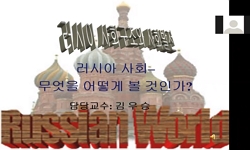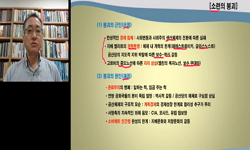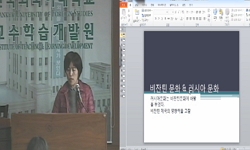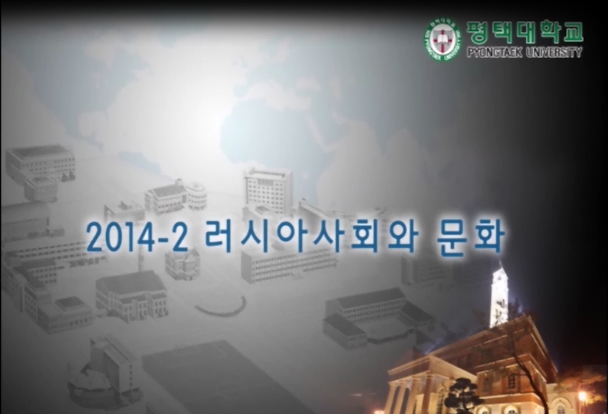Russia’s relations with Central Asian states, namely Kazakhstan, the Kyrgyz Republic, Tajikistan, Turkmenistan, and Uzbekistan, have undertaken dramatic changes since the second half of the 2010s. The outbreak of the COVID-19 pandemic proved another...
http://chineseinput.net/에서 pinyin(병음)방식으로 중국어를 변환할 수 있습니다.
변환된 중국어를 복사하여 사용하시면 됩니다.
- 中文 을 입력하시려면 zhongwen을 입력하시고 space를누르시면됩니다.
- 北京 을 입력하시려면 beijing을 입력하시고 space를 누르시면 됩니다.

국제관계이론으로 본 포스트 코로나 시대 러시아- 중앙아시아 관계 전망: 구성주의적 대안이론을 중심으로 = Russia’s Relations with the Central Asian States in the Post-COVID-19 Era: Observation and Expectation through Constructivist International Relations Approaches
한글로보기https://www.riss.kr/link?id=A108040088
-
저자
이광태 (한국외국어대학교 국제지역연구센터)

- 발행기관
- 학술지명
- 권호사항
-
발행연도
2022
-
작성언어
Korean
-
주제어
러시아 ; 중앙아시아 ; 신현실주의 ; 구성주의 ; 가치외교 ; 유라시아주의 ; 푸틴 ; Russia ; Central Asia ; neorealism ; constructivism ; value diplomacy ; Eurasianism ; Putin
-
등재정보
KCI등재
-
자료형태
학술저널
-
수록면
353-396(44쪽)
-
KCI 피인용횟수
0
- 제공처
- 소장기관
-
0
상세조회 -
0
다운로드
부가정보
다국어 초록 (Multilingual Abstract)
Russia’s relations with Central Asian states, namely Kazakhstan, the Kyrgyz Republic, Tajikistan, Turkmenistan, and Uzbekistan, have undertaken dramatic changes since the second half of the 2010s. The outbreak of the COVID-19 pandemic proved another dramatic turning point in the Russo-Central Asian relationship. Determined to change the status-quo of the unipolar international system led by the United States, Russia has sought to deepen the cooperation with China. On the other hand, struggling with the medical and economic difficulties posed by the pandemic, the Central Asian states found themselves in the vulnerable position in terms of the lack of legitimacy caused by the transition of power from the founding presidents to the second generation political elites. Despite the huge investment of China and its economic power in the region, Central Asia is poised to face the increasing influence of Russia with the withdrawal of the U.S. troops from Afghanistan. Furthermore, Central Asia’s deteriorating economy intensifies its reliance on Russia.
Given the aggressive policies by the Putin administration, well exemplified its decision to annex the Crimean Peninsula from Ukraine, the existing literature has shown strong tendency to describe the interactions between Russia and Central Asian States from the neorealist perspectives. However, the expansion of Russia’s power and influence cannot be explained solely with the neorealist or neoclassical realist viewpoints. This paper argues that constructivist approaches are necessary to comprehend the changes in Russia’s relations vis-à-vis Central Asian states regarding discussions on incomplete sovereignty, the issue of persisted influence of Russian-centered diplomatic practices, and the notion of Russia’s own value diplomacy.
동일학술지(권/호) 다른 논문
-
러시아 ‘литературный язык’에 관한 통시적 고찰: 우리말 ‘표준어’ 및 ‘문학어’와 관련하여
- 충북대학교 러시아 • 알타이지역 연구소
- 김용화
- 2022
- KCI등재
-
Grammatica Russica(1696)의 형태론: Грамматıки Славєнскиѧ правилноє Сѵнтаґма(1619)와 비교의 관점에서
- 충북대학교 러시아 • 알타이지역 연구소
- 한지형
- 2022
- KCI등재
-
N. 레스코프의 소설 <왼손잡이>에 나타난 신조어와 사회적 방언 연구
- 충북대학교 러시아 • 알타이지역 연구소
- 백경희
- 2022
- KCI등재
-
전쟁의 아이러니와 비극적 파토스의 재현: 베레샤긴의 예술에 나타난 휴머니즘의 미학
- 충북대학교 러시아 • 알타이지역 연구소
- 장혜진
- 2022
- KCI등재
분석정보
인용정보 인용지수 설명보기
학술지 이력
| 연월일 | 이력구분 | 이력상세 | 등재구분 |
|---|---|---|---|
| 2027 | 평가예정 | 재인증평가 신청대상 (재인증) | |
| 2021-01-01 | 평가 | 등재학술지 유지 (재인증) |  |
| 2018-01-01 | 평가 | 등재학술지 선정 (계속평가) |  |
| 2017-01-01 | 평가 | 등재후보학술지 유지 (계속평가) |  |
| 2015-01-01 | 평가 | 등재후보학술지 선정 (신규평가) |  |
| 2008-08-22 | 학회명변경 | 한글명 : 러시아연구소 -> 러시아 • 알타이지역 연구소영문명 : Institute for Russian Studies Chungbuk University -> Institute for Russian and Altaic Studies Chungbuk University |
학술지 인용정보
| 기준연도 | WOS-KCI 통합IF(2년) | KCIF(2년) | KCIF(3년) |
|---|---|---|---|
| 2016 | 0.1 | 0.1 | 0 |
| KCIF(4년) | KCIF(5년) | 중심성지수(3년) | 즉시성지수 |
| 0 | 0 | 0 | 0.05 |




 RISS
RISS 스콜라
스콜라







